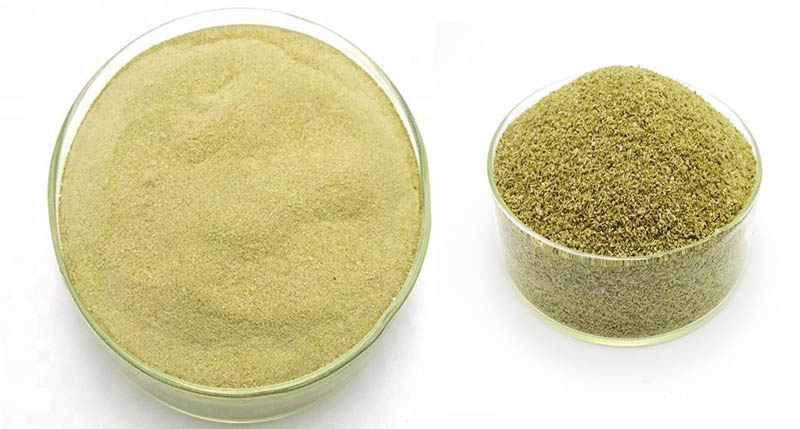Int'l : +1(646) 600-5072 | query@kbvresearch.com
Int'l : +1(646) 600-5072 | query@kbvresearch.com
Published Date : 17-Feb-2021 |

Initially utilized widely as an additive and ingredient in the food industry, alginate has become a vital compound for a broad range of industries and applications like the medical, pharmaceutical, and cosmetics sectors. In the food industry, alginates have been utilized to coat fruits and vegetables, as a microbial and viral protection product, and as a gelling, thickening, stabilizing, or emulsifying agent.
Alginate is a natural compound extracted from marine brown algae and has conventionally been widely used as additives and ingredients in the food industry. Though, owing to their beneficial properties like biocompatibility, nontoxicity, biodegradability, and functional versatility with numerous matrices and substrates, alginates have been used for the development of wound dressings.
Sodium alginate holds a major share of the alginate industry across the globe. This is owing to its huge usage in the preparation of several food items that involves whipped creams, dressings, sauces, and jellies. The product offers high stability to the dairy items, like dry and refined cheese, and is utilized to reduce the cracking of icing of cakes and pastries.
Calcium alginate has increasingly been used in the pharmaceutical industry because of the huge consumption volume of the product. The demand for calcium alginate in the pharmaceutical industry is fuelled by the increasing use of wound dressing and wound care. Moreover, calcium alginate fibers are utilized to help wound healing and are primarily used for wounds that display drainage or fluid excretion.
Potassium alginate is considered as the potassium salt of alginic and it is extensively utilized in the pharmaceutical sector because of its wonderful thickening and stabilizing features. This product also finds application in nutritional and functional foods as it aids in reducing blood cholesterol and blood sugar.
Propylene glycol alginate is considered as an ester of alginic acid. This type of alginate is extensively utilized as a stabilizer, thickener, and emulsifier across various industries that involve food, pharmaceutical, and personal care, and cosmetics. When it comes to the food application segment, the product is approved as a food additive by the Food and Drug Administration (FDA) and widely utilized as an ingredient in numerous food preparations.
The uses of alginates are depended on three main properties. The first is their capability, when dissolved in water, to thicken the resulting solution. The second being their capability to form gels; gels are formed when a calcium salt is added to a solution of sodium alginate in water. The third property of alginates is the capability to create films of sodium or calcium alginate and fibers of calcium alginates.
In textile printing, alginates are utilized as thickeners for the paste having the dye. We can apply these pastes to the fabric by either screen or roller printing equipment. Alginates became essential thickeners with the emergence of reactive dyes. These merge chemically with cellulose in the fabric. The majority of the traditional thickeners like starch, react with the reactive dyes, and this results in lesser color yields and sometimes by-products that are not simply washed out.
Alginates are not capable of reacting dyes; they easily wash out of the resulting textile and are the ideal thickeners for reactive dyes. Alginates are more costly than starch and in the last few years, starch manufacturers have attempted to create modified starches that do not react with the reactive dyes.
The thickening characteristic of alginate is beneficial in sauces and in syrups and toppings for ice cream. Pastry softening by liquid from the filling is decreased with the process of thickening pie fillings with alginate. By adding alginate, icings can be made non-sticky and aid the baking goods to be covered with plastic wrap.
A few of the fruit drinks contain added fruit pulp and it is suggested to maintain this in suspension; inclusion of sodium alginate or propylene glycol alginate (PGA) in acidic conditions can reduce sedimentation of the pulp. In chocolate milk, the cocoa can be put in suspension by an alginate mixture. Calcium alginate coatings have been utilized to aid in preserving the frozen fish. If the fish is frozen in a calcium alginate jelly, the fish can be prevented from the air, and rancidity from oxidation gets restricted.
Alginate has proved itself as an essential pharmaceutical and biomedical drug delivery tool because of its versatile beneficial properties. Particularly in the domain of controlled released delivery, wound healing, and tissue engineering. The essential features of alginate for these applications are biocompatibility, non-toxicity, mild gelation, and simple modification technique.
Owing to the various benefits of the alginate in different industries, we can expect the high growth of the alginate market over the forecast period.
The Global Alginate Market size is expected to rise at a market growth of 8% CAGR during the forecast period.